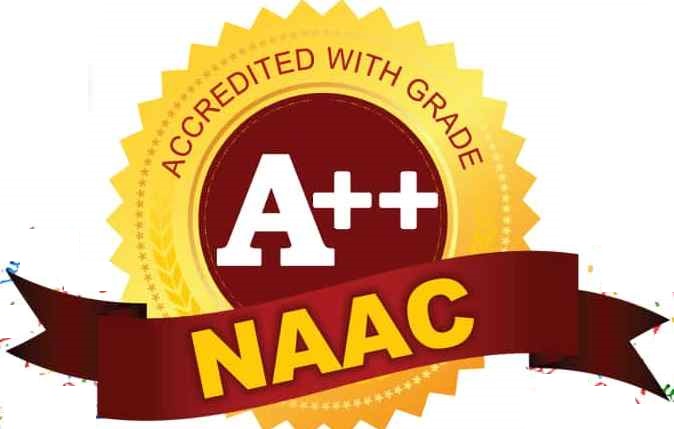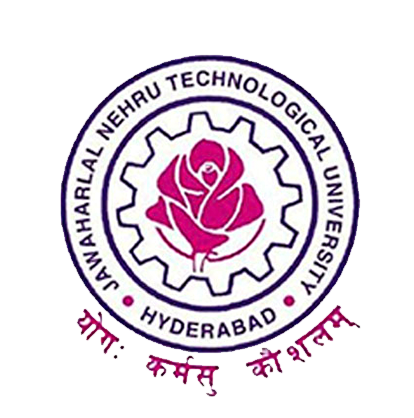Frequently Asked Questions (FAQs) on College AUTONOMY
Frequently Asked Questions (FAQs) on College AUTONOMY1. What is autonomy?
Autonomy is a functional status given to the colleges, by the University Grants Commission and University. It provides greater flexibility towards purely academic development for upliftment of academic standards and excellence.
2. What is the need for autonomy?
(i) The affiliating system of colleges was originally designed when their number in a university was small. The system has now become unwieldy and it is becoming increasingly difficult for a university to attend to the varied needs of individual colleges.
(ii) The regulations of the university and its common system, governing all colleges alike, irrespective of their characteristic strengths, weaknesses and locations, have affected the academic development of individual colleges.
(iii) Colleges that have the potential for offering programmes of a higher standard do not have the freedom to modernize their curricula or make them locally relevant or globally competent.
(iv) The Education Commission (1964-66) recommended college autonomy, which, in essence, is the instrument for promoting academic excellence.
(ii) The regulations of the university and its common system, governing all colleges alike, irrespective of their characteristic strengths, weaknesses and locations, have affected the academic development of individual colleges.
(iii) Colleges that have the potential for offering programmes of a higher standard do not have the freedom to modernize their curricula or make them locally relevant or globally competent.
(iv) The Education Commission (1964-66) recommended college autonomy, which, in essence, is the instrument for promoting academic excellence.
3. What kind of autonomous status a college can avail?
As per the present norms of UGC and University, college can avail only the ACADEMIC Autonomy status not a financial or full autonomy.
4. What are the objectives of autonomy as per the National Policy on Education? Or what kind of flexibility / freedom is available for autonomous college? An autonomous college will have the freedom to:
(i) Determine and prescribe its own courses of study and syllabi, and restructure and redesign the courses to suit local needs;
(ii) Offer student-centric wide choice in courses, wide range of electives and freedom in choice of courses.
(iii) Periodical change in syllabus as per changing needs
(iv) Prescribe rules for admission in consonance with the reservation policy of the state government;
(v) Evolve methods of assessment of students’ performance, the conduct of examinations and notification of results;
(vi) Use modern tools of educational technology to achieve higher standards and greater creativity; and
(vii) Promote healthy practices such as community service, extension activities, projects for the benefit of the society at large, neighbourhood programmes, etc.
(ii) Offer student-centric wide choice in courses, wide range of electives and freedom in choice of courses.
(iii) Periodical change in syllabus as per changing needs
(iv) Prescribe rules for admission in consonance with the reservation policy of the state government;
(v) Evolve methods of assessment of students’ performance, the conduct of examinations and notification of results;
(vi) Use modern tools of educational technology to achieve higher standards and greater creativity; and
(vii) Promote healthy practices such as community service, extension activities, projects for the benefit of the society at large, neighbourhood programmes, etc.
5. Who provides autonomous status to colleges?
The University Grants Commission (UGC) – an autonomous body of the Ministry of HRD, Govt of India is entrusted provide autonomous status for six years after two stages of verification by the UGC itself and the affiliating University. The parent University will confer the status of autonomy upon a college that is permanently affiliated, with the concurrence of the State Government and the University Grants Commission.
6. What is the difference between a Deemed University and an Autonomy College?
A Deemed University is fully autonomous to the extent of awarding its own Degree. A Deemed University is usually a Non-Affiliating version of a University and has similar responsibilities like any University. An Autonomous College enjoys Academic Autonomy alone. The University to which an autonomous college is affiliated will have checks on its performance of the autonomous college.
7. What about the fee structure in autonomous colleges?
The fees charged for traditional BTech/MTech/MBA degrees will be according to the parent university norms. But for add-on, additional courses, Vocational Component, Skill Improvement programme, moderate separate fees could be charged.
8. What is the benefit to the Students and Teachers of autonomous colleges?
An autonomous college carries a prestigious image for the students and the teachers. Autonomy reflects efforts for excellence in academic performances, capability of self governance and enhancement in the quality of education. Autonomy is actually earned out of our continued past efforts on academic performances, our capability of self governance and the kind of quality education we offer.
Standardisation of college examinations only benefits admission officers in postgraduate programs. It also provides a convenient yardstick for employers to judge prospective
employees. Admission officers and employers can be steered toward seeking alternatives of aptitude tests like SAT or GRE. Most important, in a competitive education market, each college has a reputation to protect—easy grades give a cheap reputation. Reputation is a more reliable tool than standardisation to sustain the quality of education.
9. What are the pre-requisites for becoming autonomous?
All colleges recognized under section 2(f) and 12(B) of UGC Act with sufficient academic and non-academic resources are eligible to apply for conferment of UGC autonomy. Autonomous status covers certificate diploma, undergraduate, postgraduate and M.Phil. programmes offered in colleges.
10. Who are the stake-holders to avail the benefits of autonomy?
The major stake holders of an autonomous college are: a) Faculty b)Students c)Parent/Guardian d)Alumni e) Local community
11. Who grants the degree in an autonomous college?
The Parent University (i.e University of JNTUH, Hyderabad) will award degree to the students evaluated and recommended by the autonomous college. The degree certificates will be in a common format devised by the University. The name of the college will be mentioned in the degree certificates. Autonomous colleges that have completed three terms can confer the degree under their title, with the seal of the university.
12. What is the minimum period for autonomous status to a college?
Six years.
13. How does the examination system function in an autonomous college?
Students’ performance is examined internally and externally. Continuous assessment and range of assessment options
1. Written Test (not more than one or two for each course as applicable)
2. Term Paper
3. Journal/Lecture/Library notes
4. Seminar presentation
5. Short Quizzes
6. Assignments
7. Extension Work
8. An Open Book Test
9. Mini Research Project by an individual student or a group of students
10. Field work / Visit reports
To ensure fairness and justice to students, various alternatives are adopted in the examination system.
1. Written Test (not more than one or two for each course as applicable)
2. Term Paper
3. Journal/Lecture/Library notes
4. Seminar presentation
5. Short Quizzes
6. Assignments
7. Extension Work
8. An Open Book Test
9. Mini Research Project by an individual student or a group of students
10. Field work / Visit reports
To ensure fairness and justice to students, various alternatives are adopted in the examination system.
14. What is the role of office of Controller of Examination (CoE)?
The Exam Committee is responsible for the smooth conduct of the Semester examinations, submission of assignments, and additional examinations. All matters involving the conduct of examinations, spot valuations, tabulations, preparation of Grade Cards etc fall within the duties of the Office of the Controller of Examinations.
15. Who declares the result?
The CGPA grades that are tabulated by the Controller of Examination is reviewed by the moderation committee. Any deviation and discrepancies are deliberated and removed. The entire result is discussed in the Result Committee for its approval. The result is declared on the college notice boards as well as on the web site of the college. A copy is also sent to the University.
16. Can the college give a provisional degree certificate?
Since the examinations are conducted by COE of the College and the results are also declared by COE of the college, the college sends a list of successful candidates with their final Grades and Grade Point Averages including CGPA to the University. With the prior permission of the University, the college will be entitled to give the provisional certificate.
17. What are the Statutory Committees of an autonomous college?
The statutory committees are
1. BOG
2. Academic Council
3. BOS
4. Finance committee
1. BOG
2. Academic Council
3. BOS
4. Finance committee
18. What are the non-statutory committees?
The non-Statutory Committees are
| S.No. | Names of academic and administrative bodies |
|---|---|
| 1 | Internal Quality Assurance Cell (IQAC) |
| 2 | Research and Development Committee |
| 3 | Student Association Council (SAC) Committee |
| 4 | Industry Institute Interaction Cell (IIIC) |
| 5 | Intellectual Property Rights Cell |
| 6 | Entrepreneurship Development Cell (EDC) |
| 7 | College & Salvage Committee |
| 8 | Discipline Committee |
| 9 | Website Committee |
| 10 | Newsletter and Magazine Editorial Committee |
| 11 | Grievance Redressal Committee |
| 12 | Time Table Committee |
| 13 | NSS Committee |
| 14 | Sports Committee |
| 15 | Alumni Committee |
| 16 | Anti-Ragging Committee |
| 17 | Canteen Committee |
| 18 | Hostel advisory Committee (Boys), Hostel Advisory Committee (Girls) |
| 19 | College Library Committee |
| 20 | Women Protection and Anti-harassment Committee |
| 21 | Staff & Student Welfare Committee |
| 22 | Campus Maintenance and Monitoring Committee |
| 23 | Transport Committee |
| 24 | Planning and Evaluation Committee |
| 25 | Staff Selection Committee |
| 26 | Consultancy Committee |
| 27 | Training, Placement cell |
| 28 | Career Guidance Committee |
| 29 | Examination Committee |
| 30 | Professional Societies / Chapters Committee |
| 31 | Academic Audit Committee |
| 32 | Cultural Commitee |
| 33 | Purchase and Maintenance Committee |
| 34 | Right to Information (RTI) Committee |
| 35 | SC – ST Internal Complaints Committee |
| 36 | Internal Complaints Committee (ICC) |
19. Can short term courses be offered by autonomous colleges beyond the curriculum?
Yes. The college can offer special need-based short-term courses under the departments of the college for the benefit of the students and outsiders can also enrol for them.
20. How can an autonomous College start new degree / Post Graduate courses?
An autonomous College is free to start a new degree or Post Graduate course with the approval of the Academic Council of the College. Such courses shall fulfil the minimum standards prescribed by the University / UGC in terms of number of hours, curricular consent and standards. The college may rename the existing course after restructuring / redesigning it and the University should be duly informed of such proceedings so that it may award new degrees in place of the old. The University has the right to review and scrutinize all new courses of an autonomous college and can modify them in consultation with UGC.
21. Who will check whether the academic standard is maintained / improved after Autonomy? How will it be checked?
There has to be a built in mechanism in the autonomous college working for this purpose. An Internal Committee called Internal Quality Assurance Cell (IQAC) is a Non-Statutory body, will keep a watch on the academics and keep its reports and recommendations every year. In addition to IQAC, Academic Council, the highest academic body, also supervises the academic matters. At the end of three years, there is an external inspection by the University for this purpose. The standards of question papers, the regularity of academic calendar, attendance of students, speed and transparency of result declaration and such other parameters are involved in this process.
22. What is the role of State Government towards assistance to Autonomous College?
1. The Government has to convey in Concurrence for the extension of autonomy of any college by the UGC within the stipulated time of 90 days after receipt of the review Committee report. The State Government has to give a no objection to the college continuing to be autonomous.
2. The Government has to depute a nominee on time to the Governing body of Government colleges and other bodies wherever their nominees are to be included.
2. The Government has to depute a nominee on time to the Governing body of Government colleges and other bodies wherever their nominees are to be included.
23. What is the nature of assistance granted by Government/UGC after conferment autonomous status?
Financial assistance and other enabling provisions-6
The Commission will provide assistance to autonomous colleges to meet their additional and special needs such as:
a. Orientation and re-training of teachers
b. Re- designing courses and development of teaching / learning material
c. Workshop and seminars
d. Examination reforms
e. Office equipment, teaching aids and laboratory equipment
f. Furniture for office, classrooms, library and laboratories
g. Library equipment, books / journals
h. Expenditure on meetings of the Governing body and Committees
i. Honorarium to controller of Examination (full time) not exceeding Rs. 8000/ per month.
j. Accreditation (NAAC) fee
k. Renovation and repair not leading to construction of a new building
l. Extension activities
Even after Becoming Autonomous College, we will continue to be affiliated with University of JNTUH, Hyderabad
a. Orientation and re-training of teachers
b. Re- designing courses and development of teaching / learning material
c. Workshop and seminars
d. Examination reforms
e. Office equipment, teaching aids and laboratory equipment
f. Furniture for office, classrooms, library and laboratories
g. Library equipment, books / journals
h. Expenditure on meetings of the Governing body and Committees
i. Honorarium to controller of Examination (full time) not exceeding Rs. 8000/ per month.
j. Accreditation (NAAC) fee
k. Renovation and repair not leading to construction of a new building
l. Extension activities
Even after Becoming Autonomous College, we will continue to be affiliated with University of JNTUH, Hyderabad
SCHOOLS
School of Engineering
Civil EngineeringElectrical and Electronics Engineering
Mechanical Engineering
Electronics and Communication Engineering
Computer Science and Engineering
Information Technology
Mining
Humanities and Sciences
Cyber Security(CS)
Data Science(DS)
Internet of Things(IOT)
Artificial Intelligence and Machine Learning(AIML)
School of Management
Bachelor of Business Administration (BBA)Master of Business Administration (MBA)
School of Sciences
Bachelor of Computer Applications (BCA)Master of Computer Applications (MCA)
Online Courses
Bachelor of Business Administration (BBA)Master of Business Administration (MBA)
Bachelor of Computer Applications (BCA)
Master of Computer Applications (MCA)
ABOUT MRDTBU
About MRDTBUMRDTBU Health Care
RESEARCH
Funded ProjectsPublications
ONLINE LEARNING
MRDTBU Online ClassesView MALLA REDDY ENGINEERING COLLEGE (Autonomous) in a larger map







